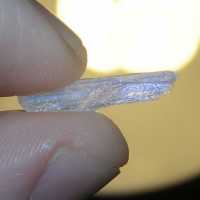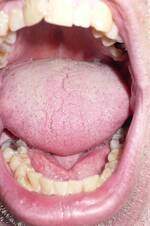
02 Sep What is Meth Mouth?
Methamphetamine is a highly addictive stimulant drug that is often used recreationally. It is a central nervous system (CNS) stimulant used to treat ADHD and narcolepsy. The drug is highly addictive and should be used only under the supervision of a healthcare provider.
Meth mouth is a slang term used to describe the dental problems resulting from methamphetamine abuse.
The long-term use of methamphetamine can lead to meth mouth due to the detrimental effects the drug has on oral health.
What Are the Signs of Meth Mouth?
The signs of meth mouth can vary depending on the severity of the condition. However, some common signs and symptoms of meth mouth include:
- Severe tooth decay
- Tooth loss
- Missing teeth
- Broken teeth
- Cracked teeth
- Yellow or brown stains on teeth
- Gum disease
- Dry mouth
- Bad breath
- Meth sores
Oral and Dental Health Problems Caused by Meth Use

Crystal Meth
Wikipedia image
Methamphetamine abuse can cause several dental problems, including:
- Tooth decay: Methamphetamine decreases saliva production, leading to a dry mouth and an increased risk of tooth decay.
- Tooth loss: Methamphetamine users are more likely to grind their teeth, leading to tooth loss over time.
- Meth mouth: The long-term use of methamphetamine can lead to meth mouth, a condition characterized by severe tooth decay and gum disease.
- Gum disease: Methamphetamine abuse can cause gum disease, leading to tooth loss. Examples of gum disease caused by meth abuse include gingivitis and periodontitis.
Dental problems associated with meth use often result from poor oral hygiene and the corrosive effects of the chemicals in methamphetamine.
Meth Mouth Prevention or Reversal Tips
There is no sure way to prevent or reverse the effects of meth mouth. However, there are some things you can do to reduce your risk of developing this condition:
- Brush and floss your teeth regularly: This can help remove plaque and bacteria from your teeth and gums.
- Visit your dentist regularly: Your dentist can help identify any early signs of dental problems and provide treatment as needed.
- Don’t smoke: Smoking tobacco products can increase your risk of developing dental problems.
- Avoid sugary drinks: Drinking sugary beverages can contribute to tooth decay.
- Limit alcohol consumption: Alcohol use can also contribute to tooth decay.
Long-Term Effects of Meth Mouth that Go Beyond Dental Health Problems
Methamphetamine abuse can lead to several dental problems, but it can also have other effects on your overall health. Some of the long-term effects of meth use include:
- Weight loss
- Anxiety
- Paranoia
- Insomnia
- Aggression
- Hallucinations
- Delusions
- Psychosis
- Mood swings
- Violent behavior
- Kidney damage
- Liver damage
- Heart damage
- Stroke
Treatment Options for Meth Mouth
 Several treatment options are available if you or someone you know is struggling with meth mouth. Treatment for meth mouth typically includes a combination of dental and medical care.
Several treatment options are available if you or someone you know is struggling with meth mouth. Treatment for meth mouth typically includes a combination of dental and medical care.
Some of the dental treatments that may be recommended for meth mouth include:
- Tooth extraction: In some cases, teeth may need to be extracted due to severe decay.
- Root canal: A root canal can be used to treat an infected tooth.
- Fillings: Fillings can be used to treat cavities.
- Crowns: Crowns can be used to restore damaged teeth.
- Bridges: Bridges can also be used to restore missing or damaged teeth.
In addition to dental treatments, medical treatments may also be necessary to address the underlying causes of meth mouth. Some of the medical treatments that may be recommended for this condition include:
- Cognitive-behavioral therapy: This therapy can help address the underlying psychological causes of meth abuse.
- Medication-assisted treatment: Medication-assisted treatment can help reduce cravings and withdrawal symptoms associated with methamphetamine addiction.
- Support groups: These groups provide information and resources to help you recover from meth addiction.
- In-patient rehabilitation: In-patient rehabilitation can provide the structure and support you need to recover from methamphetamine addiction.
- Out-patient rehabilitation: Out-patient rehabilitation can also provide you with the resources and support you need to recover from methamphetamine addiction.
Meth mouth is a serious condition that can lead to dental and general health problems. If you or someone you know is struggling with this condition, it’s important to seek professional help.
Treatment can help address the underlying causes of meth mouth and provide the tools you need to recover.
The information on MedicalResearch.com is provided for educational purposes only, and is in no way intended to diagnose, cure, or treat any medical or other condition. Always seek the advice of your physician or other qualified health and ask your doctor any questions you may have regarding a medical condition. In addition to all other limitations and disclaimers in this agreement, service provider and its third party providers disclaim any liability or loss in connection with the content provided on this website.
Last Updated on September 2, 2022 by Marie Benz MD FAAD
